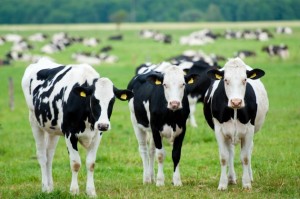New farm bill is business as usual

By Adam Ulbricht | Watchdog.org
A new farm bill avoids major disruptions for both farmers and consumers alike — for the time being.
Had a deal not been made, rules would have defaulted to laws dating back to the 1940s, causing some dairy prices to potentially double. This scenario is commonly referred to as the “dairy cliff.”
The bill passed both chambers in bipartisan fashion; with a House vote of 251-166 and a 68-32 vote in the Senate. The White House says the president will sign the bill soon.
The bill, however, does nothing but suspend the rules, known as permanent law, until Dec. 31, 2018, when the new legislation is set to expire.
GOT MILK: New farm bill is making changes but the threat of the “dairy cliff” still exists.
Here’s how it works: Under the Agriculture Act of 1949, the Secretary of Agriculture would be forced to buy commodities such as milk at a rate of 75 percent to 90 percent of its parity price. A parity price refers to the rate at which farmers are compensated relative to the changing cost of living.
The Secretary of Agriculture will also be required to make loans and other operational support available to farmers.
If this were to happen, consumers could experience a bit of price shock the next time they shop. Since the federal government would be required to buy dairy products at a much higher rate, farmers looking to turn a bigger profit could sell to the USDA instead of suppliers or grocery stores.
A lack of supply could cause wholesale milk prices to double. The average price for a gallon of milk is a little more than $3.50.
Even the USDA is critical of the current system. While analyzing the effects of permanent law, the USDA concluded “such a result would ‘dramatically narrow the universe of producers who receive support, and would do so in a way that most producers will view as irrational.’”
So if the consequences of this scenario are so bad, why doesn’t Congress change the law? The answer may be simple – politics.
“If you don’t have a consequence, you wouldn’t get a bill at all,” said the Senior Vice President of communications for the National Milk Producers Federation Chris Galen, whose organization doesn’t favor permanent law. “It serves as a worst-case scenario.”
Although farmers would see some benefits from the government buying more dairy products, Galen says it would be bad for business. “It’s trading short-term gain for long-term pain.”
Matthew Mitchel, senior research fellow at the Mercatus Center at George Mason University, agreed. “They love having the threat there. The threat of worse policy allows them to pass bills like this.”
Mitchel cautions this style of governing could lead to the passage of some bad legislation. “The new policies could easily become more expensive to taxpayers.”
Both men appear to be right. During an interview with National Public Radio, Agriculture Secretary Tom Vilsack admitted, “It’s a great lever to compel action.” Vilsack continued by saying, “In most cases, it’s the reason why we’ve had fairly routine extensions of the farm bill for the past 50 years.”
The good news for consumers is Congress has repeatedly avoided permanent law, making it appear as though the concept is working. But the roulette-like strategy leaves the door open for an ever-looming possibility of future market disruptions.
As for the new farm bill, its estimated cost is nearly $1 trillion and totals around 950 pages in length. The Congressional Budget Office estimates it will save $16.6 billion over the next 10 years compared to current funding.
The bill eliminates direct payments to farmers in favor of expanded insurance programs, including margin insurance for dairy operations.
Galen says the bill “contains the biggest dairy reforms in a generation.” He says that although it doesn’t have everything they want, it does “represent a significant improvement.”
You can email Adam at aulbricht@watchdog.org
The post New farm bill is business as usual appeared first on Watchdog.org.







